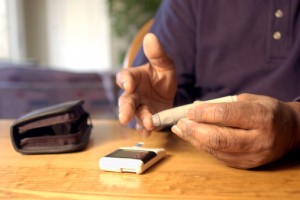Lose Weight > Common Sense To Lose Weight > Common Sense Article > Weight Loss Surgery Boosts Risk For Substance Abuse
Weight Loss Surgery Boosts Risk For Substance Abuse
This report, published in Archives of Surgery, describes previous studies that relates bariatric weight loss surgery candidates to individuals addicted to other substances such as nicotine and alcohol. These candidates suffer from binge-eating disorder and display addictive personalities, therefore after their weight loss surgery (WLS), they may replace overeating with a different substance. Patients have been advised to explore these effects before undergoing surgery
Alexis Conason, Psy.D., of New York Obesity Nutrition Research Center, and colleagues, examined survey responses from 155 patients (132 women) who underwent weight loss surgery, and signed up after an informative session at a bariatric surgery center.
The participants underwent laparoscopic Roux-en-Y gastric bypass surgery (100) or laparoscopic gastric band surgery (55). All patients answered questionnaires to evaluate eating behaviors and substance use before their operation, and at one, three, six, twelve, and 24 months following surgery.
Patients documented noteworthy increases in the amount of substance use (a combination of drug use, alcohol use, and cigarette smoking) 24 months after surgery. Specifically, the authors saw that participants reported a meaningful increase in the prevalence of substance use from the time of the surgery to 24 months after surgery. Also seen was significant increases from one, three, and six months to 24 months following their operation.
Furthermore, those who had laparoscopic Roux-en-Y gastric bypass surgery (LRYGB) reported a meaningful jump in the frequency of alcohol use from the period before surgery to 24 months afterwards.
The authors concluded:
"Based on the present study, undergoing RYGB surgery appears to increase the risk for alcohol use following WLS. Risks and benefits should be weighted when recommending LRYGB surgery to patients who may be at increased risk of developing problems with alcohol after WLS, such as those with a personal or family history of alcohol abuse or dependence."
Written by Kelly Fitzgerald
Related Articles
-
Weight Loss Programs – What Is The Best Programs For Losing Weight
Many people are searching for different weight loss techniques and the
-
Six Steps To Weight Loss Success
What does it take to lose weight?When it comes to losing weight there
-
Tips To Battle Food Cravings
Have you ever noticed that when you are exhausted or down, you have
-
The Hazards Of Rapid Weight Loss
Is losing fat an issue that concerns you?In case you are, are you see
-
Are You Wearing The Right Sized Bra?
How many times is it written in the press, and mentioned on the ne
-
Binge Eating Can Be Overcome - Try These 5 Easy Tips!
and whatever was in that punch they serv
- DON'T MISS
- Quick Weight Loss: Sure-shot Tips
- HCG Diet – The Right Weight Loss Program For You
- Diet Preparaton The Impact Of Sleep And Stress
- 5 Facebook Mistakes Every Dieter Makes
- Mediterranean Diet – Safe, Easy and Healthy Weight loss
- Body Weight And Dieting In The New Energy
- Choosing a Weight Lifting Program for Women
- Bodybuilding for Beginners
- Acai Berry Superfood: Best Diet Ever
- How to Avoid Gaining Weight in College




